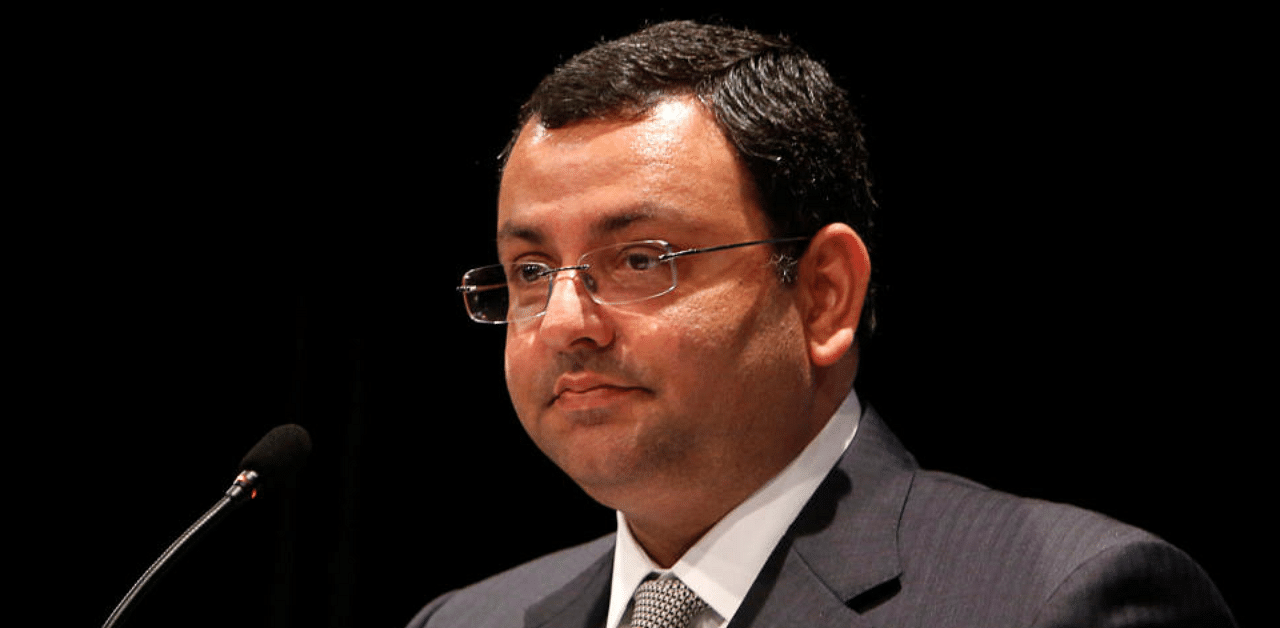
In an unprecedented move, the Mumbai bench of the income tax appellate tribunal (ITAT) has retracted the critical remarks it made on Cyrus Mistry in its recent order that restored the tax-exempt status of the three key Tata Trusts.
In a major moral victory for the past chairman of Tata Group who was unceremoniously sacked on October 24, 2016, the tribunal issued a corrigendum on Wednesday to its December 28 order saying "the critical remarks were due to a typo."
The corrigendum issued by the president of the tribunal P P Bhatt and vice-president Pramod Kumar, clarifies that the first order made certain "inadvertent references to Mistry because of a few typo errors."
Further, it says in observations on Mistry one fact that was inadvertently missed out was that the information furnished by Mistry was in response to a notice from the assessing officer.
It further says, "The above corrections will have no impact on the outcome of the appeal and the outcome of the appeal remains the same."
The Mistry family has welcomed the suo motu retraction saying, the immediate correction of wild allegations in the ITAT order is a vindication of truth and justice.
"We note that the income tax appellate tribunal has issued a corrigendum on its own, to correct the wild personal allegations made against Mistry that formed part of its December 28 order, in a proceeding where Mistry was not even a party," the Mistry family told PTI.
In the two-page corrigendum, the tribunal says, the error happened as para 37 in the first order had to be numbered as 47 on page 60. Accordingly, para 37 stands now substituted as 47 and all remaining paras are renumbered as 48 to 67, instead of 38 to 57.
Further the tribunal says, "some inadvertent errors have crept in the order dated December 28…At page 60-61, certain observations were made about Mistry. One fact, which was inadvertently missed out was that the information furnished by Mistry was in response to a notice from assessing officer.
"Under these circumstances, the observations made in para 38, which is now renumbered on account of typographical mistake as para 48, is modified by substituting as under:-
"Para 48. It is well known that Mistry, an ex-chairman of the Tata Group, was removed from his position in Tata Group on October 24, 2016, and within eight weeks of his removal, he sends this material in response to a notice, against the trusts in the Tata Group, including the assessee before us, to the assessing officer.
"The inputs from those engaged in a rivalry with an assessee ought to have been considered by the department with a reasonable degree of circumspection and should not be placed on such a high pedestal so as to relegate all other material facts and accepted past assessment history of the case into insignificance," reads the corrigendum.
The Mistry family further said, "The reversal of the comments acknowledges that information sent by Mistry to the deputy commissioner of income tax had been in response to specific summons issued under Section 133(6) of the Income Tax Act, which is expected of any law-abiding person.
As a director of Tata Sons, Mistry responding to the summons was a legal requirement and fully in accordance with the articles of association of Tata Sons and more importantly, was in discharging his fiduciary duties as a director, the Mistrys said.
Noting that Tata Trusts are public charitable trusts and not a family investment firms, Mistry said instead of seeking to blame him at every turn, the trustees must introspect why they deviated from their given path of philanthropy, which led to a greater scrutiny on their operations by various government bodies.
The trustees must also introspect why in July 2018 the public accounts committee of Parliament expressed concern that these trusts were being used to run businesses for profit, repeatedly violating provisions of the Income Tax Act.
Similarly, the CAG in its 2019 report had said the corpus of the Tata Trusts were being used to control group companies instead for charity.
The trustees should also introspect why they continued to donate millions of dollars to rich foreign universities, and worse, where one of the trustees had an association, instead of using the tax-exempt money for developing educational institutes in our country as mandated by the trusts.
It is a matter of record that even as early as 2013, the CAG had found irregularities of nearly Rs 1,000 crore in income tax exemptions given to the Tata Trusts, the statement said.
On December 28, the tribunal upholding the tax-exempt status of Ratan Tata Trust, JRD Tata Trust and Dorabji Tata Trust, which together own 66 per cent of Tata Sons, said the March 2019 revision order of the IT department cancelling tax exemption to these trusts, was "devoid of any legally sustainable merits".